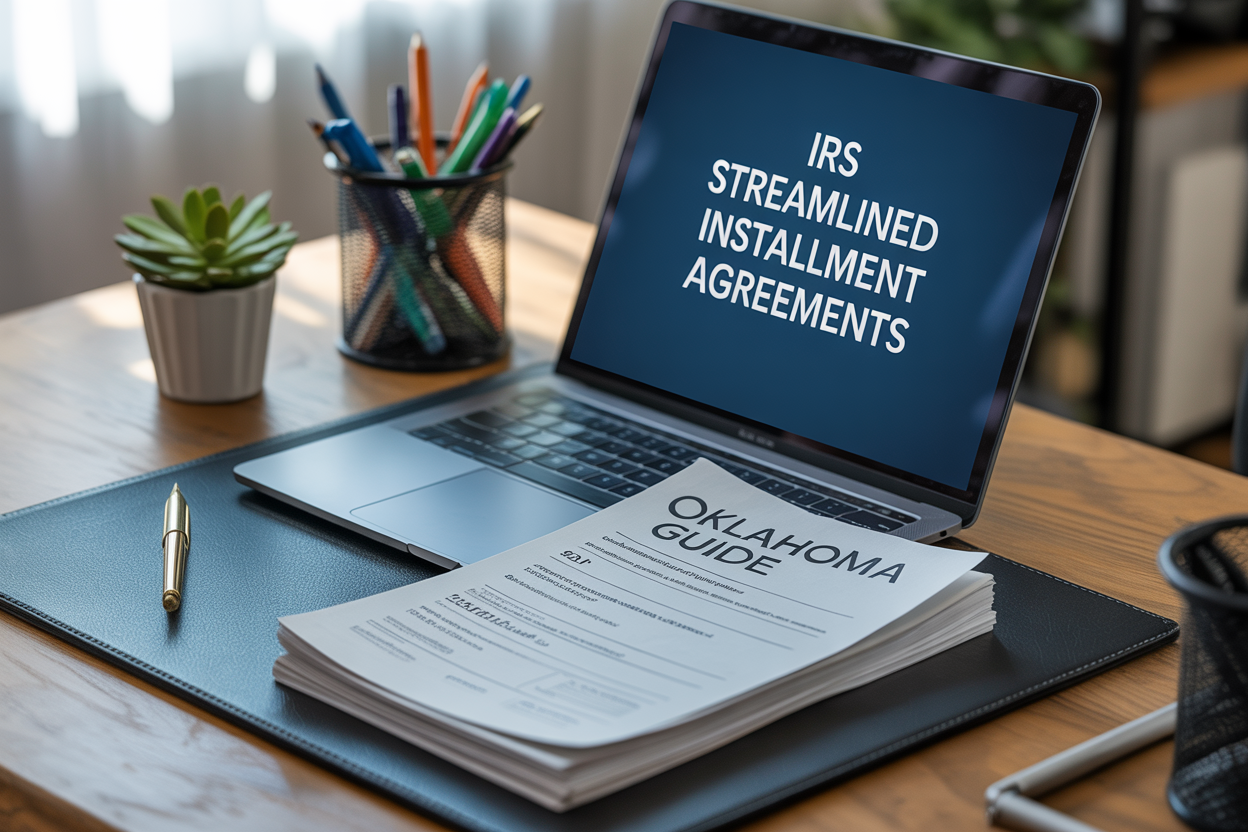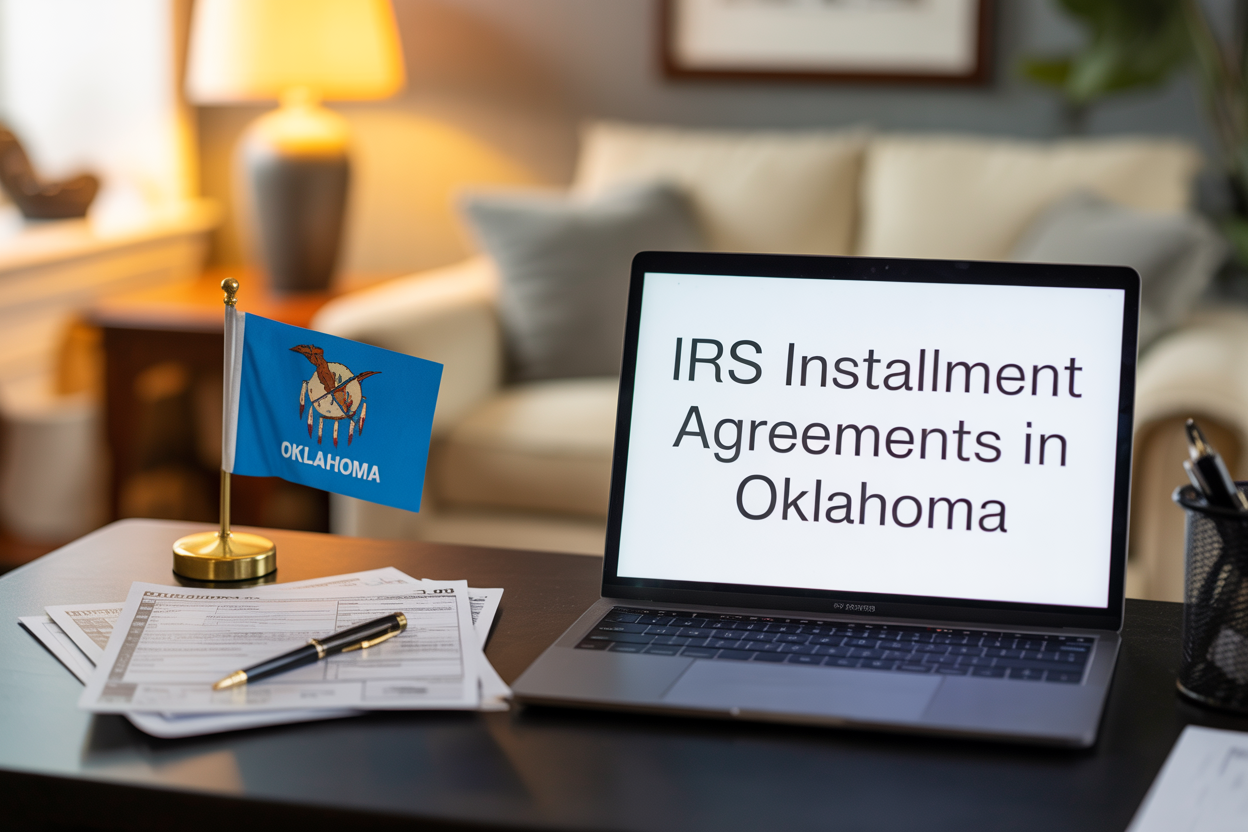Offer in Compromise Myths Debunked – What Really Works in 2025 (Oklahoma Guide)

If you owe back taxes to the IRS and are hoping to settle your debt, you’ve probably heard the phrase "pennies on the dollar."
That’s the dream, right? Settle your entire IRS balance for a tiny fraction and walk away debt-free.
Unfortunately, most of what you hear about Offer in Compromise (OIC) is either outdated, misleading, or flat-out wrong.
At Boulanger CPA and Consulting PC, we help Oklahoma taxpayers file successful Offer in Compromise cases every year — and we know what actually works (and what doesn’t).
In this post, we’re going to break down the most common myths about the OIC process and show you what really works in 2025 if you want to settle your IRS tax debt for less.
Myth #1: Anyone Can Settle With the IRS
Reality: The IRS only accepts Offers in Compromise when you can prove that paying your full balance would cause significant financial hardship.
You must submit:
- IRS Form 433-A (OIC)
- Form 656 (Offer)
- Complete documentation of your income, expenses, assets, and liabilities
Your offer must be based on your Reasonable Collection Potential (RCP).
Not sure what your RCP is? Try our free Offer in Compromise Calculator to estimate what the IRS might accept.
Myth #2: You Can Settle for Pennies No Matter What You Owe
Reality: The IRS doesn’t care how much you owe. They care about what they can reasonably collect from you.
If you owe $50,000 and the IRS believes they could collect $40,000 over time, they won’t settle for $2,000.
However, if your RCP is only $1,500, and you owe $80,000, they may accept it.
Learn how the IRS calculates your Offer in Compromise here.
Myth #3: The IRS Will Take My House If I Apply
Reality: Submitting an OIC does not trigger a property seizure.
In fact, once your offer is filed, the IRS generally pauses collections while it is under review. However, they will analyze equity in your home as part of your offer evaluation.
We often argue for home equity discounts based on:
- Mortgage balances
- Sale costs
- Partial exemptions for family residences
We use Oklahoma-specific IRS standards to minimize equity exposure wherever possible.
Myth #4: You Have to Be Broke or Unemployed to Qualify
Reality: Many successful OIC applicants are employed or self-employed.
The key is showing that your monthly disposable income is low after allowable expenses. We help you:
- Maximize allowable expenses (housing, transportation, etc.)
- Document special expenses (childcare, medical, etc.)
- Use Oklahoma IRS standard deductions for accuracy
Read our blog on how self-employed taxpayers in Oklahoma can qualify for an Offer in Compromise.
Myth #5: If the IRS Rejects Your Offer, You're Out of Luck
Reality: If your offer is rejected, you can:
- Appeal the decision within 30 days
- Adjust your offer and resubmit
- Negotiate an Installment Agreement or Currently Not Collectible (CNC) status
Learn more about how to appeal a rejected IRS Offer in Compromise.
Myth #6: You Need a National Tax Relief Firm to Get Approved
Reality: Many national firms use scare tactics and cookie-cutter solutions. They don’t understand Oklahoma-specific IRS standards, housing costs, or regional allowances.
At Boulanger CPA:
- We’re based in Oklahoma City
- We use local IRS standard tables for food, housing, and vehicle allowances
- We speak directly to the IRS Offer Examiner assigned to your case
- You get licensed, CPA-led representation — not a sales rep or processor
See how our Oklahoma CPA-led Offer in Compromise service works.
Final Truth: OIC Success Comes Down to Strategy + Compliance
If you’ve filed all your returns, have limited equity, and your monthly income barely covers living expenses, you may qualify.
But to succeed in 2025, your offer must be:
- Based on the IRS formula (not emotion)
- Fully documented and defensible
- Filed with the right timing
Want to know if you qualify? Use our Offer in Compromise Calculator or call us to schedule a confidential evaluation.
📞 Call
(405) 384-4900
🗓️
Schedule Your Free Strategy Call
🧠 FAQ – Offer in Compromise Myths
Is it really possible to settle with the IRS for pennies on the dollar?
Sometimes — but only if your financials qualify. The IRS only accepts low-dollar settlements when your Reasonable Collection Potential is very limited.
Can I qualify if I still have a job or income?
Yes. Many successful applicants are employed or self-employed. The key is having low disposable income after allowable expenses.
Will the IRS take my home if I apply for an Offer in Compromise?
No. Filing an OIC does not trigger seizure, and collection is generally paused during review. Home equity is evaluated but not automatically taken.
What happens if the IRS rejects my offer?
You can appeal, adjust the offer, or pivot to an installment agreement or Currently Not Collectible status. We help you explore all options.
✍️ About the Author
Marc Boulanger, CPA, is the founder of Boulanger CPA and Consulting PC, a CPA firm based in Oklahoma City, OK.
Marc is the author of Oklahoma Taxpayers' Guide: Taking a Stand Against the IRS and has resolved hundreds of complex federal and state tax cases.
With over a decade of experience in IRS and OTC representation, Marc helps Oklahomans navigate high-stakes tax problems with clear strategy and calm expertise.
He is a Certified Tax Representation Consultant and a member of the American Society of Tax Problem Solvers (ASTPS).
📍 Office: Oklahoma City, OK | 📞
(405) 384-4900 | 🌐
www.oklahomacity.cpa










